Phil Mullen was a prolific striker with Kidderminster Harriers, for whom he scored 164 goals between 1978 and 1983, as well as with Cinderford Town, Atherstone United, Moor Green, Bromsgrove Rovers, Alvechurch and Redditch United.
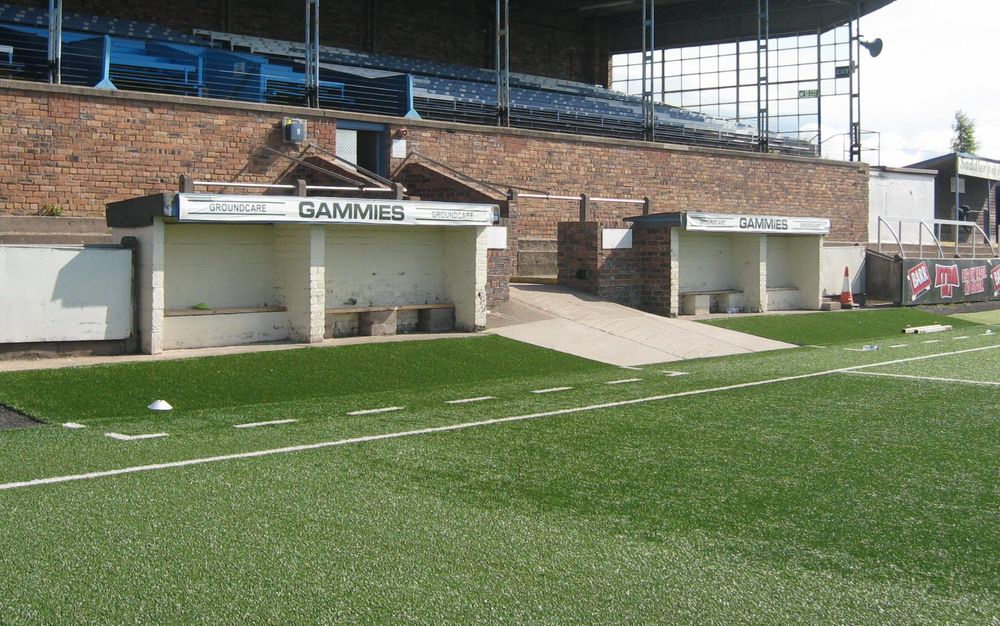
His first spell in charge of then-West Midlands (Regional) League club Stourport Swifts came in the 1990s, first alongside Pat Lynch.
He had spells in charge of former clubs Bromsgrove Rovers and Redditch United in the Southern League and was in charge at Conference outfit Kidderminster for a short spell before Jan Molby took over the reins in July 1999.
In September 1999, Mullen was appointed as manager of Evesham United, who finished mid-table in his first season in charge and had a decent run in the FA Cup and reached the final of the Worcestershire Senior Cup.
After a disappointing start to the 2003/04 season, Mullen departed in October 2003 and was replaced by former Coventry City defender David Busst.
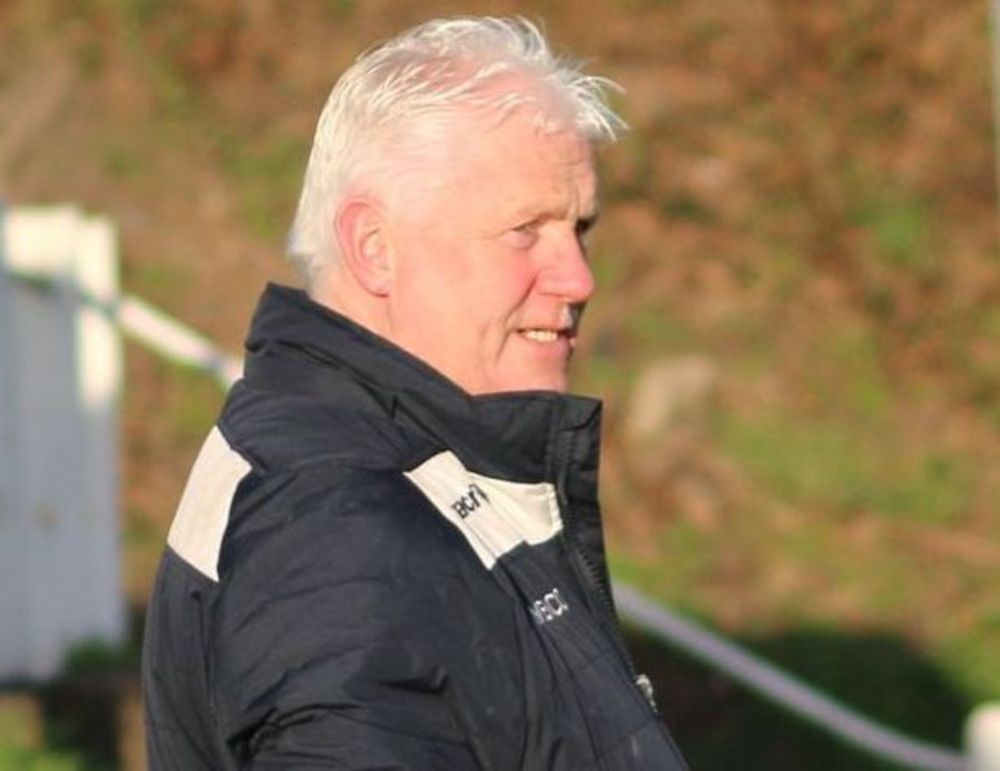
Phil Mullen
However, Mullen wasn`t out of a job for long as Evesham`s Southern Western Division rivals Cinderford Town – for whom he played in the 1970s - handed him their managerial post a month later.
He had a spell working with Kidderminster`s youth set-up and then in November 2006, he returned to Stourport Swifts for his third stint at Walshes Meadow.
In the summer of 2014, Mullen, along with former Kidderminster legend Paul `Ocker` Davies, ended a five-year sabbatical from the game to take over as manager of West Midlands (Regional) League Premier Division side Bewdley Town, where they remain to this day.
Dave Stringer had spells as a player with Nuneaton Borough, Atherstone United, Hinckley Athletic, Bedworth United, Bolehall Swifts, Ford Sports, Racing Club Warwick, Barwell and VS Rugby between 1999 and 2001, making 38 appearances.
In June 2009, Stringer was appointed as manager at Northern Premier League Division One South club Shepshed Dynamo.
He had previously been at the Dovecote during Adam Stevens’ brief spell in charge before following Stevens to Coalville Town where he worked alongside him in a similar position during two successful Midland Alliance seasons.
His first spell with VS Rugby came in May 2010 as Martin Sockett's assistant manager, he led the Warwickshire club to a sixth-place finish in his first full season in charge in 2011/12 before twice securing the runners-up spot.
A second sixth-place finish in April saw him leave Butlin Road at the end of the campaign after four years at the helm.
In June 2015, he was appointed as manager of NPL Division One South outfit Chasetown but was re-appointed as Rugby`s first-team manager in May 2017.
The second spell came after Valley were relegated to the Midland League Premier Division in 2017 and Stringer led the team to a sixth-place finish before the club parted company at the end of the season.
He left Bultin Road in May 2018 and he helped out at Midland League outfit Highgate United in 2019/20 as assistant to Russell Dodd – the pair having worked together at Nuneaton Griff – before Stringer took over as manager of another Midland League side, Heather St John`s, in July 2020.
Ray Daniel was a centre-half good enough to be capped 21 times by Wales during the 1950s, the most glorious decade of its history.
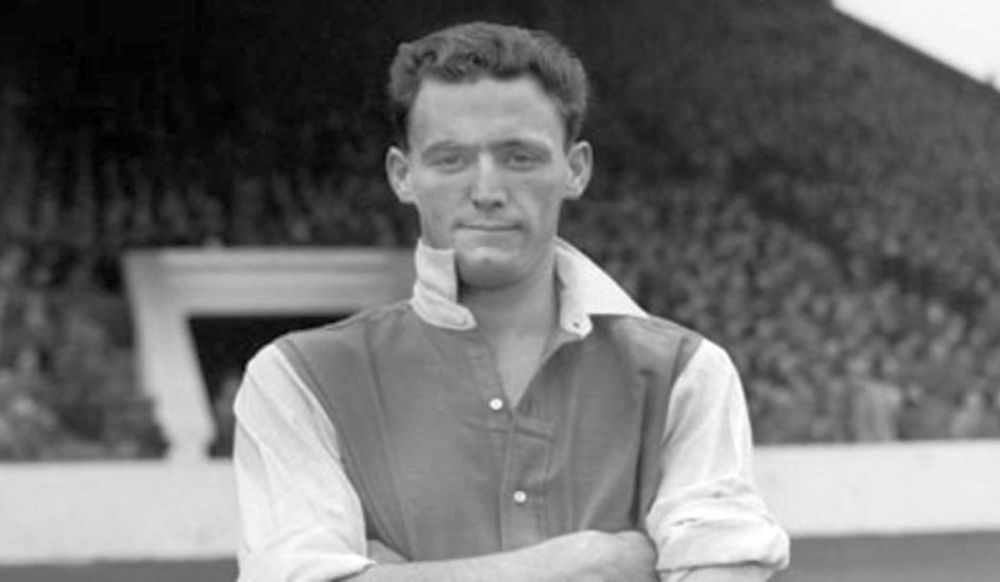
Ray Daniel
Daniel rose to prominence during the early 1940s in Swansea, stepping off a remarkable conveyor-belt of talent which was to include Trevor Ford, John and Mel Charles, Ivor and Len Allchurch, Cliff Jones and Terry Medwin.
Only 15 when he made his first-team debut for the Swans as a full-back in wartime competition, he exhibited such potential that he was snapped up by Arsenal while still an amateur in 1946.
He appeared 87 times for the Gunners, played in the 1952 FA Cup Final and was a key figure in the Gunners' 1952/53 League Championship success before Sunderland, then in the top-flight and known as the `Bank of England club`, were in the process of assembling a star-studded side and Daniel was persuaded to join his friend and fellow Welsh international Trevor Ford on Wearside.
After the £27,500 move - a record for a defender at that time - Daniel gave some of his most polished displays, helping to achieve fourth place in the First Division in 1954/55.
He went on to make 136 appearances for the Black Cats and then following a spell with Cardiff City, he re-joined Swansea in March 1958 and netted 7 goals in 44 League outings prior to joining Hereford United in July 1960.
Daniel spent seven years at Edgar Street in the Southern League, including a two-year stint as player-manager, before leaving the game in 1967, worked in the licensed trade and was a sub-postmaster in Swansea.
He died in November 1997, aged 69.
Billy Lane was a centre-forward who played for the likes of London City Mission, Gnome Athletic and Park Avondale before signing for Tottenham Hotspur in 1922.
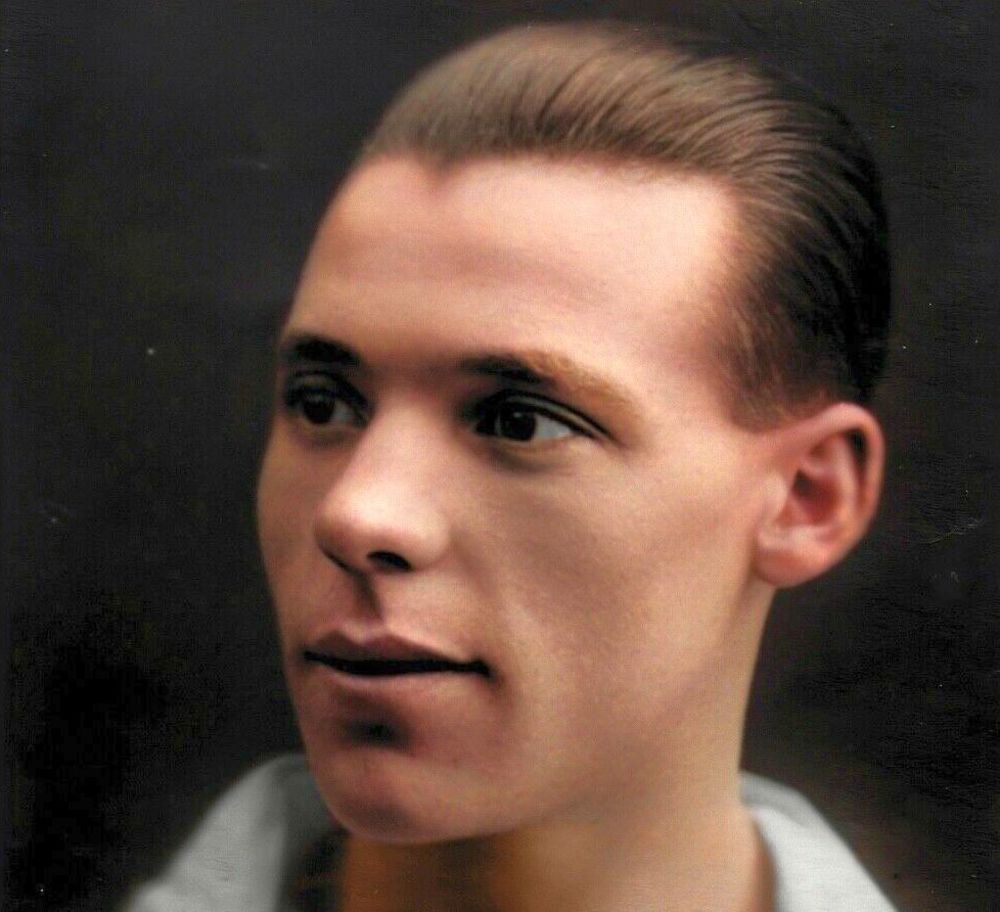
Billy Lane
He didn`t play a game for Spurs but, after spells with Hellenic League side Summerstown and Athenian Leaguers Barnet, he re-joined Tottenham`s `nursery` team Northfleet United in the Southern League.
Lane went on to feature in 36 matches and found the net on 12 occasions between 1924 and 1926 but his time with Spurs came to an end after manager Peter McWilliam dropped him after he kicked the ball into the crowd after having a goal disallowed in a match against Preston North End.
Lane had been courting the attention of the England selectors at the time, who were present at the match, but unimpressed with his behaviour, the incident ended his chances of an international call-up and his Tottenham career.
Short spells with Leicester City and Reading followed before he signed for Brentford in May 1929.
He enjoyed a good three years with the Bees, making 112 appearances and scoring 82 goals.
He transferred to Watford for £1,000 in May 1932 and his tally for the Hornets included a 3-minute hat-trick against Clapton Orient.
He played 124 games for Watford, netting 68 times, and then had a 30-game spell with Bristol City and a short time at Clapton Orient.
In 1938, Lane signed for Kent League side Gravesend United and was also assistant manager at former club Brentford.
After the Second World War, Lane was appointed as manager of Southern League Guildford City and had a couple of decent seasons with the club.
Then in 1951, he took over as manager of Brighton & Hove Albion and led them to its first-ever Football League title in 1957/58 as Third Division South champions.
He spent a decade at the Goldstone Ground and then returned to the Southern League as manager of the now-merged Gravesend & Northfleet in 1961 until 1963,
After leaving Gravesend, Lane became a scout for Arsenal and later returned to Brighton in a similar role and was still working for the Seagulls at the time of his death in November 1985 at the age of 81.
Born in Derbyshire – where his father Ben was playing for Derby County at the time - Harry Warren was a centre-half who began his playing days with then-Leicestershire Senior League side Gresley Rovers.
His father Ben had played 22 times for England, but his tale is a tragic one as he died when he was just 37, Harry being 14.
When Harry was just 10 his father was certified insane, leaving Harry’s mother Minnie to look after him and his three siblings.
His Football League debut for Blackpool, then managed by Major Frank Buckley, came in a Second Division match against Barnsley in February 1925.
Buckley would become renowned as a great disciplinarian but evidently, that didn’t rub off on Warren whose quiet style was known to lack respect amongst the playing staff.
Leaving Blackpool after just 5 appearances, Warren played briefly at Exeter City and Merthyr Town, then in the Third Division South, before signing for Sheffield United in 1929.
He was to play only twice for the Blades but September games away to Leicester City and at home to Middlesbrough did give him the distinction of playing in the First Division.
As a centre-half though he evidently failed to impress sufficiently, the Bramall Lane outfit conceding 3 goals in each match.
Two years later, at the age of 29, Warren set out on the administrative path, becoming secretary/manager at Southern League Eastern Section outfit Folkestone, where he spent eight years, winning several honours, including the Central Section title in 1934/35.
In 1939 Chelmsford City, who had just joined the Southern League, appointed Warren as secretary/manager in place of Billy Walker.
In the meantime, Southend-on-Sea had become a restricted area and their Sutton Road ground had been requisitioned by the Army Officer Training Corps in 1940 leaving the football team without a home.
Playing home games at Chelmsford, Warren was promptly given the same job that he had but also with Third Division South side Southend United.
In 1956, Warren took over as manager of Coventry City from former Sweden international manager George Raynor.
He was asked to manage the Third Division South representative team in 1956/57.
Following his sacking by Coventry in September 1957 at the age of 55, Warren didn’t work in football again.
He passed away ten and a half years later in Leigh-on-Sea in Essex, two days after his 66th birthday.
Steve Dolby came from junior football to play for Burton Albion more than 300 times over a nine-year spell, from 1976 to 1985, turning out in both the Southern and Northern Premier Leagues.
He is 12th in the all-time appearance list for Burton Albion.
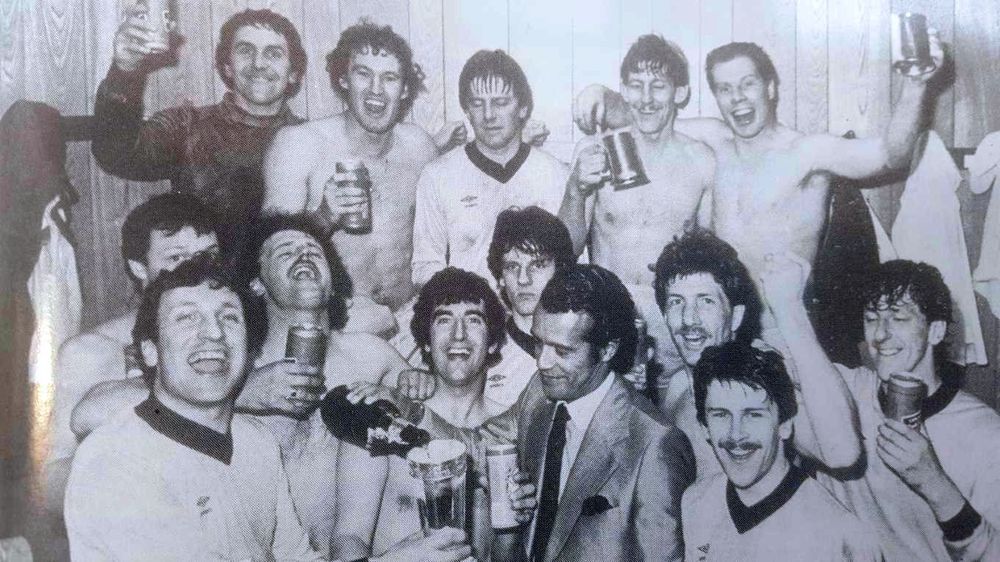
Steve Dolby with his Burton Albion team-mates in 1983
In 1985, Dolby faced Leicester City in the Third Round of the FA Cup and was faced with the task of keeping two of England’s finest forwards quiet on that day, as he played against Gary Lineker and Alan Smith, who would go on to play for Barcelona and Arsenal respectively.
In May 1985, Dolby made the short move to neighbours Gresley Rovers.
But after 148 games and 12 goals, injury brought his playing career to an end.
He left Gresley in September 1989 to re-join Burton Albion as coach.
However, things did not work out and he re-joined Gresley in January 1990, becoming coach and then manager towards the end of the 1991/92 season.
Gresley had only been promoted from the West Midlands (Regional) League at the end of the 1991/92 season, having won back-to-back titles.
They immediately won promotion from the Southern League Midland Division by finishing runners-up to Nuneaton Borough.
Under Dolby, Rovers finished 14th and then eighth in the Premier Division.
He was teaching at De Ferres High School, Stretton, Burton-on-Trent until retiring in January 2019 after 40 years at the school.
Barry Stobart
Stobart began his football career at Wath Wanderers, the Yorkshire-based nursery club of Wolverhampton Wanderers, before heading south in 1953 to join them, turning professional in 1955.
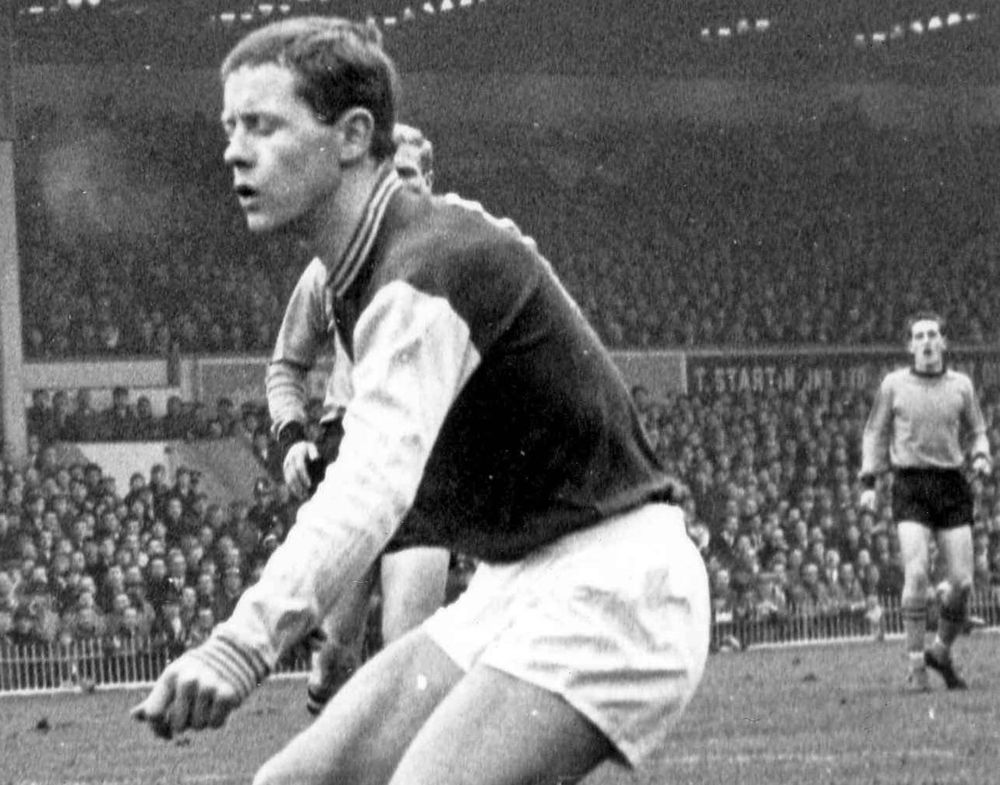
Barry Stobart
With the likes of Peter Broadbent, Dennis Wilshaw and Jimmy Murray already established in the forward line, Stobart was consigned to the reserves in his early years but finally made his first team debut in March 1960, when he scored in a 2–0 win at Manchester United.
Although he made just 4 appearances before the 1960 FA Cup Final, his performance in the final league game at Chelsea saw him earn a surprise place in the cup final team at the expense of Bobby Mason.
This allowed Stobart to collect the only medal of his career, as Wolves defeated Blackburn Rovers 3–0 in the Wembley showpiece.
The following two seasons saw him only appear occasionally for the first team, and it wasn't until the 1962/63 campaign that he enjoyed a lengthy run in the side, during which he scored 14 goals.
The next year saw him again largely relegated to the reserves though, and he left Molineux to join Manchester City in the summer of 1964 having made 49 appearances, scoring 20 goals.
He failed to settle at Maine Road, and returned to the Midlands within months when he joined Aston Villa in November 1964 for £22,000 after just 14 games and one goal for City.
He remained at Villa for three years, his best season coming in 1966/67 when he scored 11 times from 20 appearances.
He dropped down the divisions in October 1967 to join Shrewsbury Town of the Third Division in a £10,000 deal.
After a spell with them, he moved to South Africa to play out his career with Durban Spurs and Durban Spurs United.
In 1977, Stobart joined then-West Midlands (Regional) League side Willenhall Town as a coach under Peter Clark, who had been on the Wolves books at the same time as Stobart without managing to break into the senior side.
A year later brought the end of Clark's reign and he made one last contribution to the club that ensured that the work he had begun would be ably continued by persuading Stobart to take over at Noose Lane.
With the assistance of Stan Plant, he was soon to repeat the achievements of the 1921/22 season when Willenhall won the Birmingham & District League title.
The title was won on a sunny day in May at the Garden Walk Stadium, home of Gornal Athletic, and were rewarded with a 4-0 victory that pipped Lye Town to the title on goal difference.
Also, that season the Reds featured in an impressive FA Vase run which saw them through to the last eight of the competition, losing out to Whickham.
A season later the club, having failed to defend their title, had the satisfaction of beating Brereton Social in the League Cup final.
However, the 1980/81 season will down as probably the most exciting in the club`s history.
The start of the season saw the erection of £20,000 worth of floodlights and a game against Aston Villa marked the official opening. However, the highlight of the season was to be the FA Vase Final appearance at Wembley Stadium, with Willenhall being the first West Midlands (Regional) League club to achieve this feat.
But once again Whickham were to provide heartbreak for Town, collecting the trophy with an own goal in extra-time, this after Willenhall had gained a two-goal lead and then seen their keeper carried off through injury.
The following season saw an FA Cup First Round appearance draw a record crowd of 3,454, Crewe Alexandra spoiling the party with a narrow 1-0 win.
However, Willenhall were rewarded with promotion to the Southern League Midland Division where they finished a creditable fifth in their first season.
Stobart, having worked at Willenhall for a season with Sean O’Driscoll, moved on to fellow Southern League Midland Division outfit Dudley Town in 1987 for a three-year stint before deciding that window cleaning, walking and fishing were adequate alternative ways of filling his time.
He passed away in August 2013 at the age of 75.
Tim Thorogood was a defender on Norwich City`s books as a YTS and also played for Isthmian League sides Ilford, Leytonstone, Rainham Town and Ford United.
However, it was as owner and manager of Southern League club Ashford Town that he will be best remembered.
Thorogood took the Homelands club over from John Gurney in 2001 and appointed himself as manager in March 2001.
He remained in the post until August 2004, when Tony Reynolds was appointed, but only for three matches as former Queens Park Rangers, Tottenham Hotspur and England defender Terry Fenwick took over, having been managing Southall.
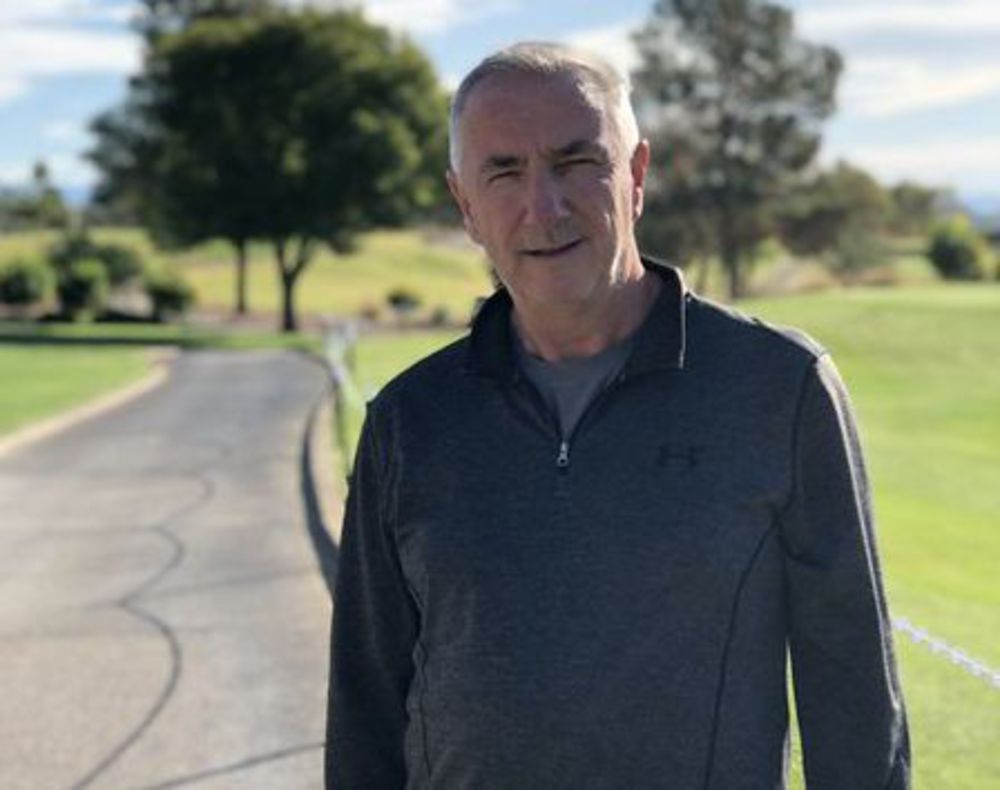
Tim Thorogood
His spell in charge lasted until the turn of the year after he was sacked and once again Thorogood took over in January 2005.
At the start of the following 2005/06 season, Thorogood and John Cumberbatch became joint managers until November 2006 when Thorogood stepped back which left Cumberbatch as sole manager.
Overall, Thorogood was sole manager for 186 matches and then a further 70 when joint manager.
His sons Joff and Joby both went on to play for the Nuts & Bolts.
Tim sadly passed away in March 2020.
Rocester only had a short spell as a member of the Southern League `family from 1999/00 until 2002/03.
During that period, Martyn Smith returned for a second spell in charge of the Staffordshire outfit.
Smith first played for Alsager College before joining Nantwich Town in September 1980.
He moved to Leek Town in November 1981 and Port Vale in August 1984, for whom he made 13 Football League appearances.
He signed for Macclesfield Town in the summer of 1985, featuring regularly until February 1986 when he lost his place following the dismissal of manager Neil Griffiths.
He then played for Eastwood Hanley before returning to Leek where he later became assistant manager.
He went on to manage Newcastle Town and Leek and had two spells in charge of Rocester, one in their Midland Alliance days and then in the Southern League.

Most clubs are looking for volunteers. Find out more on the button below:
www.PitchingInVolunteers.co.ukAll the news and results in one place.
REGISTER